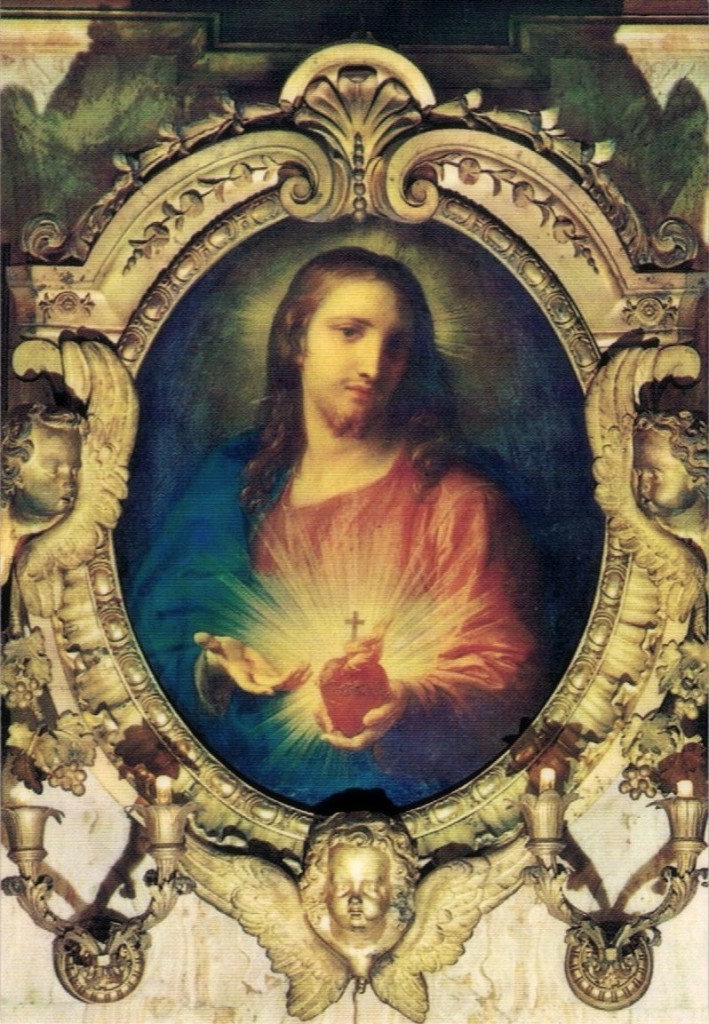Spiritual Sunday
Pastor Sue Schmidt, good friend and long-time contributor to this blog, alerted me to a Denise Levertov poem that, as always with Levertov, manages to find hope in our fallen condition. In “On the Mystery of the Incarnation,” she puzzles over why God should send “the Word” to a creature so arrogant as to believe it, and it only, was created in the image of the creator. Why not send God’s incarnation to something sweet and innocent, like flowers or dolphins?
Of course, we don’t know for sure that God’s hasn’t. We can just know our own species. And because we know, we can marvel that God responds to our arrogance with love. After we’ve witnessed “the worst our kind can do”—and after we’ve shuddered at the knowledge that we share that “taint in our own selves”—our heart’s shell cracks open at the fact that God sends help. God’s compassion is such that, despite our “ugly failure to evolve,” we find ourselves entrusted with God’s human incarnation as a guest and brother. In the words of today’s Gospel reading, the Word was made flesh and sent to dwell among us.
This gift to undeserving humankind takes Levertov’s breath away. It should humble us all. Here’s the poem:
On the Mystery of the Incarnation
By Denise LevertovIt’s when we face for a moment
the worst our kind can do, and shudder to know
the taint in our own selves, that awe
cracks the mind’s shell and enters the heart:
not to a flower, not to a dolphin,
to no innocent form
but to this creature vainly sure
it and no other is god-like, God
(out of compassion for our ugly
failure to evolve) entrusts,
as guest, as brother,
the Word.
And here’s John’s magnificent, and very philosophical, account of the incarnation, which we will hear in church today (John 1:1-18):
In the beginning was the Word, and the Word was with God, and the Word was God. The same was in the beginning with God. All things were made by him; and without him was not anything made that was made. In him was life; and the life was the light of men. And the light shineth in darkness; and the darkness comprehended it not.
There was a man sent from God, whose name was John. The same came for a witness, to bear witness of the Light, that all men through him might believe. He was not that Light, but was sent to bear witness of that Light. That was the true Light, which lighteth every man that cometh into the world.
He was in the world, and the world was made by him, and the world knew him not. He came unto his own, and his own received him not. But as many as received him, to them gave he power to become the sons of God, even to them that believe on his name: Which were born, not of blood, nor of the will of the flesh, nor of the will of man, but of God.
And the Word was made flesh, and dwelt among us, (and we beheld his glory, the glory as of the only begotten of the Father,) full of grace and truth. John bare witness of him, and cried, saying, This was he of whom I spake, He that cometh after me is preferred before me: for he was before me. And of his fulness have all we received, and grace for grace. For the law was given by Moses, but grace and truth came by Jesus Christ. No man hath seen God at any time, the only begotten Son, which is in the bosom of the Father, he hath declared him.
Added note: In her note to me, Sue wrote that, in response to our vain belief that we were made in God’s image, God figured that we needed a new way of seeing that happen. “Hence Jesus,” Sue concludes.
It’s as though God said to us, “You flatter yourselves thinking you are god-like. You boost your ego by assuming that God looks like conquering royalty. But what if God looks like a poor man who dies a criminal’s death on a cross? I await your response.”
Levertov’s response, conveyed through poetry, helps us realize our God potential. Humility, not ego-boosting arrogance, is key.


